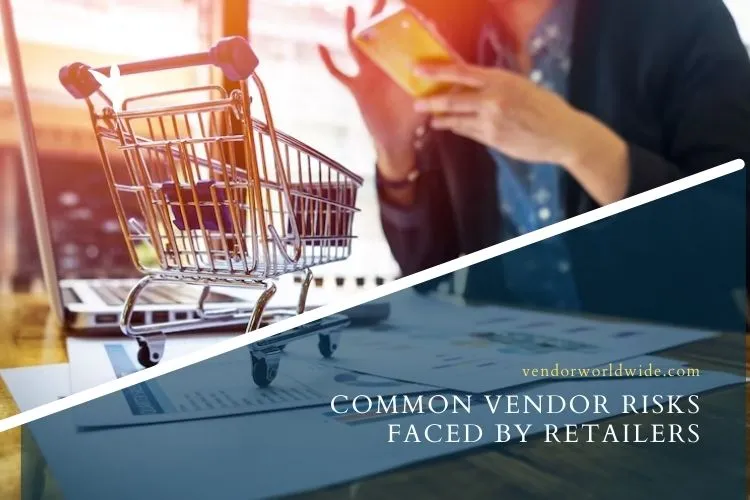
Owning a business comes with risks, including for online stores or retail shops. Today, it’s tough for any business to operate alone in our fast-paced world. Third-party vendors are key. They offer various services, from marketing and payroll to legal and logistical support. The retail sector may encounter challenges from vendor risk management, yet it remains resilient in addressing such potential risks. But before that, the retail sector must do the vendor registration Aramco for better work.
Vendor risk is a broad category of risks your company and its clients may face. They come from your suppliers’ products or services and your outsourcing. In this article, we will understand the common vendor risks faced by retailers. So, let’s start the topic.
Typical Vendor Risks Faced By the Retailers
Supply chain management challenges
Vendors supply the items and services that retailers need. Natural disasters, wars, or supplier failures can disrupt supply chains. They can cause delayed deliveries, shortages, or higher expenses.
Inventory damages
Weather disasters and natural calamities can harm physical stores and e-commerce businesses with warehouses. They often cause power outages, which spoil perishables and damage buildings. Thus, retailers must get commercial property insurance tailored to their needs. In addition, inventory damages may be covered by general retail insurance coverage.
Quality control issue
Suppliers need to ensure that the goods they provide meet the highest standards. This prevents complaints, returns, and harm to their reputation. Worse items could endanger customers’ safety and put businesses at risk of legal trouble.
Cybersecurity vulnerabilities
Since vendors can access retailers’ data and systems, they could be targets of cyberattacks. Sensitive information, such as payment or client details, may be compromised if a vendor has a security incident or data breach. That might seriously damage the retailer’s reputation. Also, after securing your confidential secrets, you need to secure the Saudi Aramco supplier registration documents so that you do not have to face any issues.
Financial instability
Vendors fulfill orders and maintain company operations for retailers. If a vendor experiences financial difficulties or decides to shut down, retailers may experience financial losses, order cancellations, and supply chain disruptions.
Dependency on key vendors
Retailers should be independent of a few major suppliers for essential goods or services. This dependence might make you far more vulnerable to changes in vendor relationships, price volatility, and supply chain interruptions.
Legal issues
Suppliers must adhere to several rules and guidelines, such as labor laws, environmental restrictions, and standards for product safety. Retailers who disobey may face financial penalties, legal repercussions, and reputational harm.
Focus on closing down
Business interruption insurance protects against income loss due to forced closures caused by fires or other property insurance claims. Canceling the policy during closure could leave you vulnerable to more risks and lead to increased premiums when restarting the insurance.
Geopolitical risks
When sourcing products from overseas suppliers, global merchants must be ready to handle geopolitical risks, such as trade disputes, tariffs, and political instability in supplier countries. These risks have the potential to increase costs, disrupt operations, and significantly affect supply chains.
To effectively reduce these risks, retailers must choose vendors carefully, have clear contracts and agreements, monitor vendor performance closely, and have backup plans ready for any disruptions. Additionally, proactive problem-solving can be achieved by collaborating and communicating frequently with vendors.
